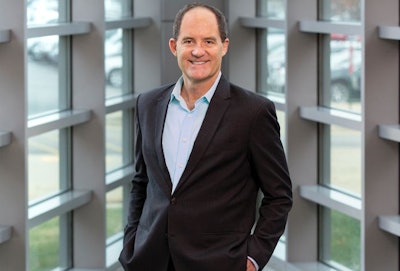
Tyson Foods has announced significant expansion plans for its international poultry business. Investments in new plants in Asia and Europe will see the company’s cooked chicken production capacity expand by 100,000 tons.
Tyson is growing its activities in China, Thailand the Netherlands. Work on the new Thai facility has already started and it will come onstream early next year. Work on expanding its Netherlands plant will begin early next year and that in China mid-2021. Once complete, the expansion is expected to create 1,800 new jobs.
Regional supply
Tyson Foods’ International President Chris Langholz commented: “In Asia, the fundamentals are very strong. It is one of the the few regions of the world where we can confidently make such a statement those fundamentals will still be there coming out the other side from COVID-19.
“China has been in play for a long time, but we are very interested in Association of South East Asian Nations (ASEAN) in addition to China. We already have a presence in ASEAN and China, we are just adding to those capabilities right now and getting ahead of demand”.
The new Chinese facility will concentrate on serving its home market, while the Thai facility will look not only to sell locally but also into Japan, Singapore and Europe. The expanded Netherlands site will continue to supply Europe.
Investment is being reasonably evenly shared across the Thai, Chinese and Dutch sites and, where Europe is concerned, Langholz notes the company is confident in the continent’s long-term future.
The investments will not only result in increased output but will bring the added benefit of giving the company a greater ability to supply chicken to where it may be needed.
“Growing our footprint around the world in response to global demand, we are going to have more flexibility in our supply chain in terms of leveraging the global network”, Langholz said.
“Another aspect that is important in today’s world is contingent supply. The whole network that we are building has a strong view towards that. Before the pandemic, contingency planning supply was of increasing importance, but the need for it now is even greater.”
Latest technologies, changing roles
These new plants will reflect the latest ideas for human and food safety and, additionally, they will be completely up to date in terms of automation and digitization. Given the developments of the last 12 months, they are also taking into account social distancing, surface types and employee flows.
The plants will take on a significant number of new staff however, with more modern and automated facilities, job profiles will be different to how they were in the past.
“Inside Tyson Foods we’ve got global teams that are collaborating on these designs, not just for the three that we are talking about here, but for everything, and we are also working with key external partners from universities and vendors to help us get the best thinking on modernizing,” Langholz explained.
Tyson has been expanding in various markets over recent years and in varying directions, but this has also meant some closures. Earlier this year the company announced the closure of its Wrexham, U.K., facility, however, no other plants are currently expected to close.
Langholz, who took on his current role with Tyson in October 2019, believes that Tyson has built a fantastic foundation for international growth.
“We have access to the right demand markets, we’ve got access to the right production markets, and assets, capabilities and great people to really continue forward,” he said.

















